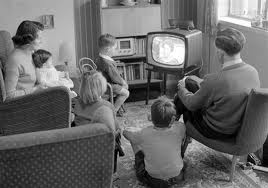A conversation on my Facebook feed brought me here today:
In addition to the thousands of local and national programs that aim to help young people avoid these life-altering problems, we should figure out more ways to convince young people that their decisions will greatly influence whether they avoid poverty and enter the middle class. Let politicians, schoolteachers and administrators, community leaders, ministers and parents drill into children the message that in a free society, they enter adulthood with three major responsibilities: at least finish high school, get a full-time job and wait until age 21 to get married and have children.
Our research shows that of American adults who followed these three simple rules, only about 2 percent are in poverty and nearly 75 percent have joined the middle class (defined as earning around $55,000 or more per year).
Three things. Simple things. Not hard to do things.
Go to school and finish it.
Get a job. Any job.
Wait to have children.


That’s like saying “piloting an airplane is easy. Just take off, fly through the air, and then land it.” The reality is that people who are in bad socio economic conditions tend not to have circumstances conducive to “following those rules.” Fix the economic mal-distribution of wealth in America, and a lot more people would “follow the rules.”
How much money do they need before they learn where babies come from?
How much money do they need before they learn where babies come from?
More.
That’s like saying “piloting an airplane is easy.
Well, flying an airplane IS easy. 40 hours.
The reality is that people who are in bad socio economic conditions tend not to have circumstances conducive to “following those rules.”
I’m willing to accept that they have a harder time than they otherwise would have had. It does NOT, however, excuse them for their poor behavior.
And more important that socio-economic status is IQ.
Spoiled Westerners quickly forget that poverty is the historical norm for thousands of years, yet despite living in conditions unimaginable by even the poorest American today, they not only practiced natural law & eudaimonia, but discovered them as well.
it’s so much easier (and empowering for the state) to fall-back on the soft bigotry of low expectations, isn’t it?
And more important that socio-economic status is IQ.
Indeed. Life is one long series of IQ tests.
In addition to this, I like Jim Rohn’s advice – your life is the average of the five people you associate with the most, and the quality of the last book you read.
In addition to this, I like Jim Rohn’s advice – your life is the average of the five people you associate with the most, and the quality of the last book you read.
I like!
An explanation for poor behavior. In looking at policy and social science I’m not concerned with “excuses.” It’s a causal factor, it’s simply human psychology. If a person is raised poorly, they will behave poorly. Maybe at an individual therapy session level one should say “that’s not an excuse,” but in terms of explaining why people behave as they do, it’s accurate. Perhaps an “is” vs. “ought” thing.
If a person is raised poorly, they will behave poorly.
I don’t dispute that. Which explains why poor people with good parents go on to lead very productive lives.
My point is – does being “raised poorly” exempt you from the social contract?